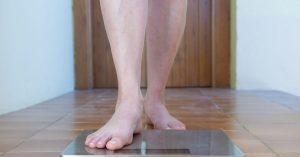
Updated January 2026
Many patients with Lyme disease describe the same frustration: “Every test looks normal, but my body doesn’t function normally.” In many cases, these persistent symptoms reflect dysautonomia in Lyme disease, a form of autonomic nervous system dysfunction that affects heart rate, digestion, sleep, and temperature regulation.
In many of these cases, the missing piece is autonomic dysfunction, also called dysautonomia. Rather than indicating permanent organ damage, autonomic dysfunction reflects impaired regulation of the nervous system’s automatic functions. This type of dysregulation can produce widespread, fluctuating symptoms even when imaging and laboratory studies appear normal.
Importantly, autonomic dysfunction in Lyme disease is typically functional rather than degenerative. When recognized early, symptoms are often modifiable and can improve with appropriate support.
“For a broader clinical framework on how Lyme disease becomes chronic, see Preventing Chronic Lyme Disease.“
What Is Autonomic Dysfunction?
Clinically, autonomic dysfunction is best understood as a pattern of nervous system dysregulation, not a single disease. The autonomic nervous system coordinates essential functions such as heart rate, blood pressure, digestion, bladder activity, temperature control, and sleep without conscious effort. Clinicians often use the term dysautonomia in Lyme disease to describe this pattern of nervous system dysregulation.
When this system becomes imbalanced, signals between the brain and body lose coordination. Patients may tolerate activity one day and crash the next, react excessively to stress, or feel as though their body no longer adapts appropriately to everyday demands.
Autonomic dysfunction is commonly seen in patients with post-treatment Lyme disease syndrome (PTLDS) and may involve multiple overlapping mechanisms.
How Lyme Disease Can Disrupt Autonomic Regulation
Lyme disease places sustained stress on the nervous system. In some patients, infection-related inflammation, immune activation, or prolonged physiologic strain interferes with autonomic signaling at both central and peripheral levels.
Autonomic symptoms may develop:
-
during active infection
-
after antibiotic treatment
-
or gradually over time
This helps explain why symptoms may persist even when treatment is completed and why standard testing often fails to identify a clear abnormality.
Notably, similar patterns of autonomic dysfunction are now being recognized in patients with Long COVID. In my peer-reviewed research on 889 Lyme patients, I found that one in five who contracted COVID-19 developed Long COVID—with neurological symptoms driving the difference. The symptom overlap between these post-infectious conditions underscores how infections can disrupt autonomic regulation through shared mechanisms.
Symptoms of Dysautonomia in Lyme Disease
Autonomic dysfunction rarely presents as a single complaint. Instead, patients often experience clusters of symptoms affecting multiple systems, sometimes fluctuating or worsening with exertion, illness, dehydration, or emotional stress.
The symptoms of dysautonomia in Lyme disease often span multiple organ systems and fluctuate over time. Common symptoms include dizziness or lightheadedness when standing, heart rate variability, exercise intolerance, temperature sensitivity, abnormal sweating, gastrointestinal slowing such as constipation or bloating, urinary urgency or incomplete emptying, sleep disruption, and fatigue that does not improve with rest.
Digestive symptoms are frequently misunderstood as isolated gastrointestinal disorders. In Lyme disease, constipation and bloating often reflect impaired autonomic control of gut motility rather than structural bowel disease. (See: Gastrointestinal Dysregulation in Lyme Disease.)
Similarly, bladder urgency, frequency, or incomplete emptying may stem from autonomic signaling disruption, not primary urologic pathology. (See: Bladder Dysfunction in Lyme Disease.)
Sleep disruption and non-restorative sleep are also common, including vivid dreams and night sweats in Lyme disease, which reflect dysregulated autonomic and neuroimmune signaling rather than anxiety alone.
Fatigue in autonomic dysfunction differs from simple tiredness. It often reflects impaired energy regulation, not lack of motivation or conditioning. (See: Fatigue in Lyme Disease.)
Why Testing Is Often “Normal”
Routine cardiac, gastrointestinal, and neurologic tests are designed to detect structural disease, not regulatory dysfunction. Autonomic imbalance affects how systems communicate rather than whether organs are damaged.
As a result, patients may be told symptoms are anxiety-related or functional in a dismissive sense, when in fact they represent true physiologic dysregulation that is simply difficult to capture with conventional testing.
Autonomic Dysfunction Is Functional — and Often Modifiable
This distinction is critical. Functional dysregulation does not imply permanence. The autonomic nervous system retains the ability to recalibrate, especially when stressors are reduced and supportive strategies are applied.
Improvement is often gradual, but recognition itself can be profoundly validating and can prevent unnecessary testing, fragmented care, and self-doubt.
How Autonomic Dysfunction Is Evaluated
Diagnosis is primarily clinical, based on symptom patterns, history, and exclusion of alternative explanations. Formal autonomic testing may be helpful in select cases but is not required to recognize the syndrome.
Evaluation focuses on:
-
symptom clustering across systems
-
triggers such as exertion or stress
-
sleep quality and hydration
-
overlap with gastrointestinal, bladder, and fatigue syndromes
The goal is not simply to label, but to provide a coherent explanation for what the patient is experiencing.
Treatment Considerations
Management of autonomic dysfunction in Lyme disease is individualized. No single intervention works for every patient. Progress typically requires addressing multiple contributors simultaneously.
Supportive strategies may include improving sleep, stabilizing hydration and electrolytes, pacing activity, reducing physiologic stress, and addressing ongoing inflammatory or infectious contributors when present.
Treatment aims to restore balance, not suppress symptoms in isolation.
A Clinical Perspective
Patients with autonomic dysfunction are frequently told their symptoms are unrelated or psychological. In reality, dysautonomia offers a unifying framework for symptoms that otherwise feel chaotic and unexplained.
Recognizing this pattern helps patients understand their bodies, reduces fear, and supports more thoughtful, integrated care.
Takeaway
When Lyme disease disrupts autonomic regulation, symptoms may be widespread, fluctuating, and difficult to test for—but they are real, explainable, and often improvable. Understanding autonomic dysfunction allows patients and clinicians to move beyond fragmented symptom management toward a more integrated path forward.
Frequently Asked Questions
Can dysautonomia improve in Lyme disease?
Yes. In many patients, autonomic symptoms improve gradually as physiologic regulation stabilizes, though recovery timelines vary.
Is dysautonomia the same as POTS?
No. POTS is one form of dysautonomia. Many patients with Lyme disease experience autonomic dysfunction without meeting formal diagnostic criteria for POTS.
Last reviewed and updated: January 2026
Links
-
Clinical Infectious Diseases Aucott JN, Rebman AW, Crowder LA, Kortte KB. Post-treatment Lyme disease syndrome symptomatology and the impact on life functioning. 2013;57(3):333–340. Pubmed
-
PLoS One Novak P, Felsenstein D, Mao C, Octavien NR, Zubcevik N. Association of small fiber neuropathy and post-treatment Lyme disease syndrome. 2019;14(2):e0212222. Pubmed
-
Psychiatr Q The neuropsychiatric manifestations of Lyme borreliosis. . 1992 Spring;63(1):95-117. Pubmed
-
Autonomic Neuroscience Freeman R. Autonomic peripheral neuropathy. 2005;124(1–2):1–3. Pubmed
-
Mayo Clinic Proceedings Benarroch EE. The central autonomic network: functional organization, dysfunction, and perspective. 1993;68(10):988–1001. Pubmed
Related Resources
Long COVID and Lyme Disease: What Patients Need to Know
Post-Treatment Lyme Disease Syndrome (PTLDS)
POTS similarities seen in Long-COVID and Lyme disease
What I added:



Dr. Cameron,
I am a 63 YO retired and disabled US Air Force 23 year Veteran. I believe I may have become infected decades ago and am currently about 6 weeks into a wholly holistic treatment plan as I have a clueless Twin Ports VA clinic in Superior Wisconsin as my Primary Care team. I just recently in the last year became aware of the Borrelia bacteria and now I am reading your latest articles about Babesia, or Bartonella and my heart is sinking. I have had every single symptom on the charts in the last 20 years. My VA doctors have no clue, no diagnosis, and there primary objective seems to be to remove me from getting any Opioid medications. I have known all along that something was wrong inside of me but even intensive blood testing showed nothing. I have so much more to share but this would become a novel. Please make contact with me so I can get someone on my side against the Minneapolis VA medical system. I am on my 7th or eighth provider since I moved back to my Hometown in Nov 2016 to get sober from alcohol and own my first house. I stopped alcohol 12 Feb 2017 for good after multiple rehabs failed over my career and beyond. Thanking our Creator for leading me to your articles and additional information I need in this war for my physical body and mind.
Sincerely,
Richard A Celusta, MSgt USAF Retired
(320) 761-7726
I am glad our Creator has gotten you this far. I grew up in Minnesota but now practice in New York. You should call my office with your question.
I find both articles on the autonomic nervous system and how to treat patients who have had treatment for Lyme previously pertinent to my situation. I was an avid hiker after retirement from 33 years of critical care nursing. I got my first EM rash after moving back to East TN. After a 2020 COVID episode I developed symptoms that caused me to suspect Lyme. My tests came back as TBRF. This last year I was bitten by multiple Lone Star ticks and developed Alpha-gal syndrome. I have been following a strict diet, aware of my triggers and my IgE was coming down. Unfortunately, I received yet another tick bite that became infected while working in the yard. I am two weeks past the bite and my AG symptoms have become worse than previously. Would you recommend antibiotic treatment, as the wound has healed with antibiotic creams, or would the drugs cause me further symptoms? I am pretty sure I have developed the POTS symptoms since this latest bite, as my heart rate fluctuates from 50 to 130 by just getting up from bed or going up to the second floor. Heat intolerance as I used to hike in this, but no more! My BP is hard to manage with the AG reactions and then swings to HTN. Headaches and neck pain that wakes me from sound sleep. It is hard to believe that my run in with black bears and rattle snakes have not harmed me, but these little creatures have me off trail due to extreme fatigue.
I have had to individualize treatments. I hope you find an answer
Thanks Dr. Cameron for taking time to reply. Would you happen to know of a Lyme literate MD within 200 miles of Knoxville, TN? Again, thank you for all this information.
Sorry